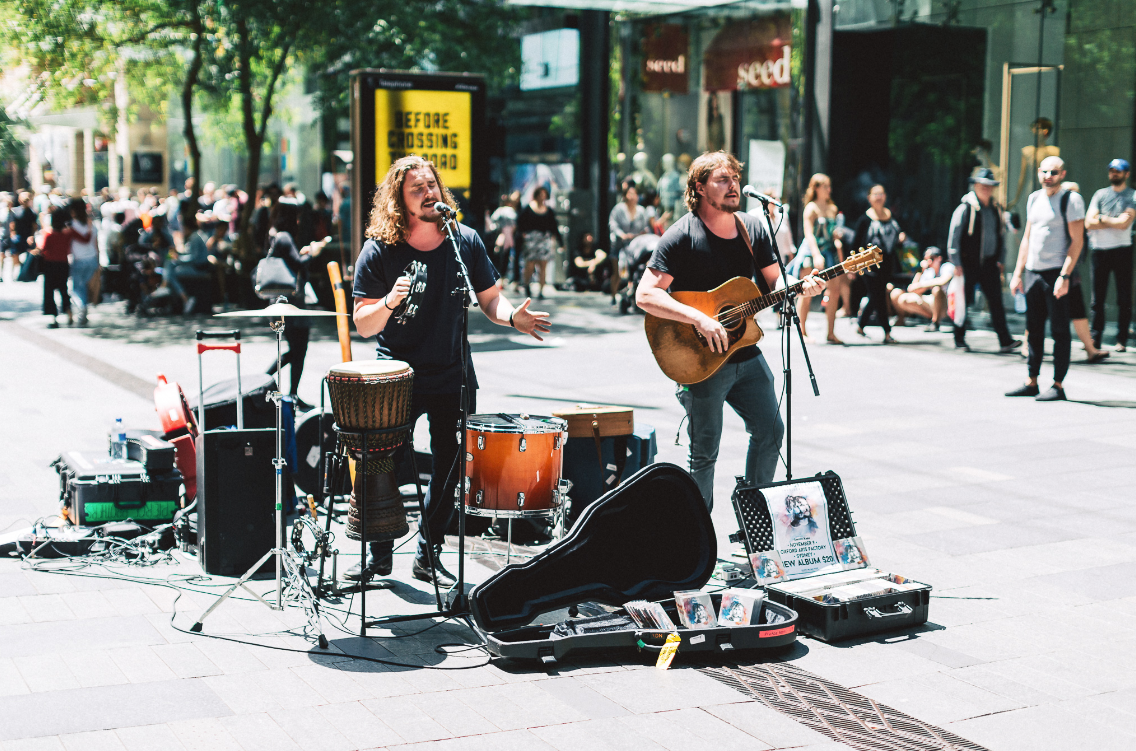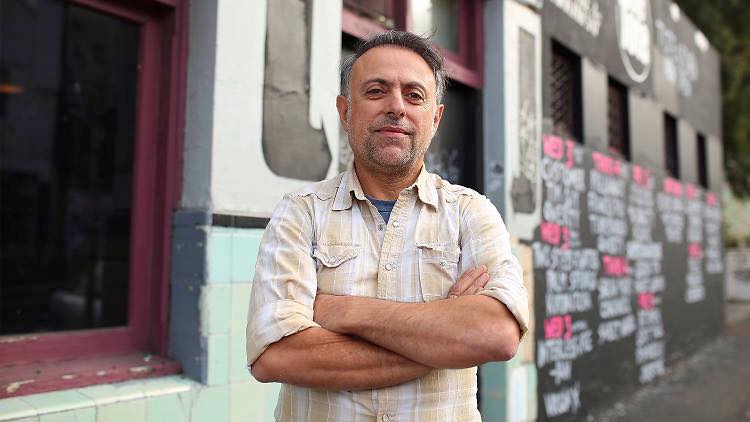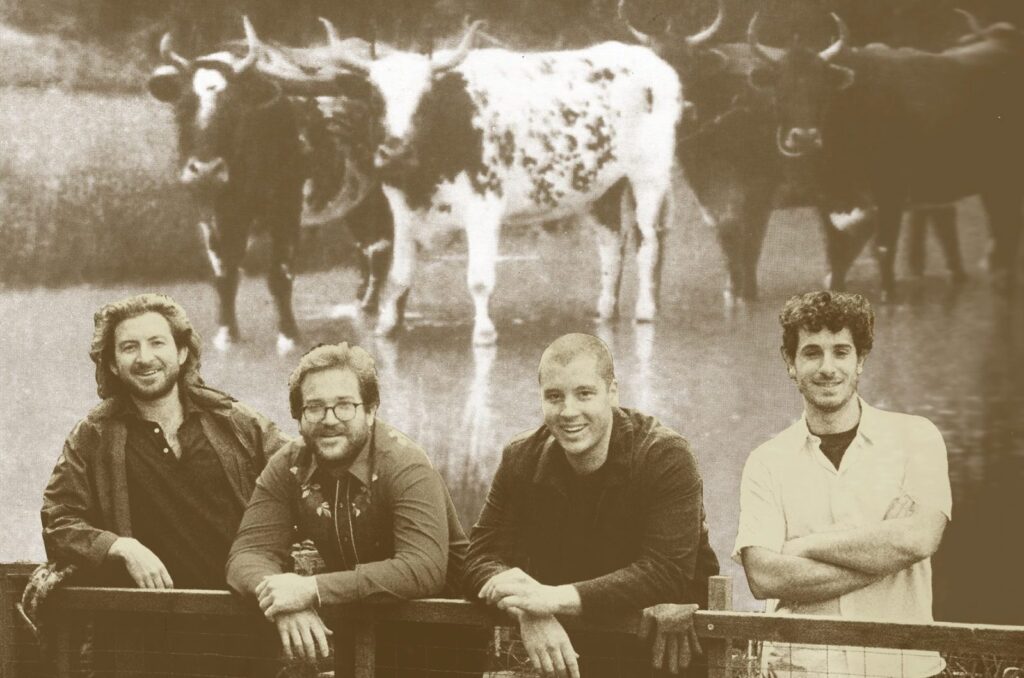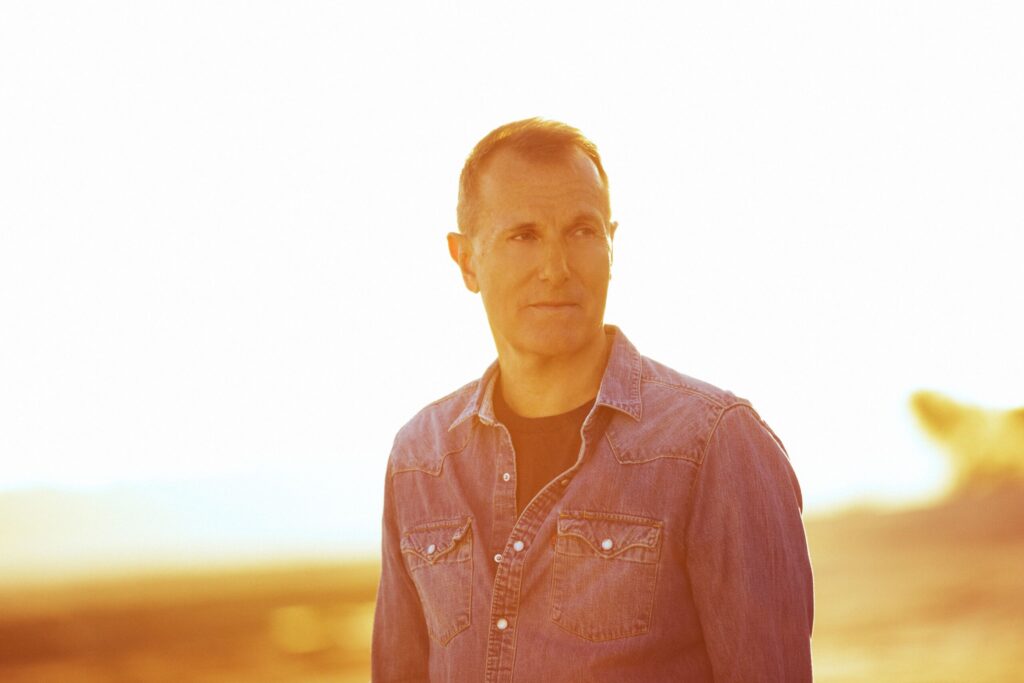Before they began their touring career in Europe and North America, twins Pat and Jack Pierce were airing their big sound in a St Kilda restaurant for small paychecks – $100 per night, or perhaps just a six-pack. It was New Zealand alternative group Bonjah, who found their first real success busking the streets of Melbourne, who recommended the fraternal duo take their playing offstage.
“Melbourne’s the best on Earth we’ve seen busking,” says Pat Pierce. “I can’t believe we hadn’t been doing it before then. Once we figured it out, it was like we’d stumbled onto a gold mine … It was like our music was tailor-made for busking, because it was loud, it was bombastic and it got people’s attention.”
Taking up busking was a commercial decision, says Jack Pierce. The two created a set-up with minimal overhead: a black-and-white A0 poster printed at Officeworks for 30 cents, plus a stack of CDs. In Bourke Street Mall, the brothers drew in passersby with flips and handstands, didgeridoo solos and covers of familiar folk tunes like Mumford & Sons’ ‘I Will Wait’.
At the end of their first day in the mall, the brothers were shocked to find that they’d moved 66 CDs. Days spent busking meant that evening concerts were better-attended and, soon, Pierce Brothers were financing their first EP; 2014’s The Night Tree.
Trying to catch the attention of busy Bourke Steet pedestrians influenced the band toward a boisterous, performative style that served them well during their first overseas tours. Jack recalls an early gig at the Netherlands’ Lowlands Festival.
“We were really nervous,” he says. “We’d never played in Europe before. It was about 5,000 people in this tent – it was just packed. We were like, ‘What are we going to do?’, and Pat looked at me: ‘It’s just busking. This is just busking, except that we’re not interrupting their lunch this time.’”
Melbourne has slowly built itself a reputation as Australia’s creative capital, which the brothers attribute in part to the city’s liberal policies toward buskers.
The city’s busking community is relatively well-organised, with weekly meetings to parcel out the sidewalk, as opposed to thelaissez-faireapproach seen in other cities. Jack Pierce remembers the hour-long queues to busk in Galway, Ireland, where buskers get space on a first come, first served basis.
However there is always a fight and point of resistance. F or Melbourne to keep its crown, the brothers say city lawmakers must keep a supportive attitude toward the busking community.
“Getting rid of busking – while we’re at it, let’s just paint over Hosier Lane,” says Pat Pierce. “It’s culture. It’s music. It’s the beat of the city. It’s such an important part of what makes Melbourne this cool, culturally rich, beautiful tapestry of a city … No matter what, there’s going to be something interesting there to watch. The creativity of how [buskers] can get a big sound to come out of a little battery and a tiny speaker – that’s, in its purest form, what music is.”
Pat Pierce takes a dim view of people who regard buskers as a nuisance.
“For a music city, I don’t know why people aren’t embracing that more,” he says. “It’s the same reason people move in next to the world’s most famous music venue, the Sydney Opera House, and then complain about the noise.”
Open mic nights can’t be the only way for musicians starting out to get their foot in the door, say the Pierce Brothers: busking has to be recognised as an effective way to take the first step into a career.
“If you’re a young muso, just get out there,” says Pat Pierce. “There’s nothing to lose. At its very worst, it’s rehearsal for a day. There’s all sorts of things that can come out of it.”







